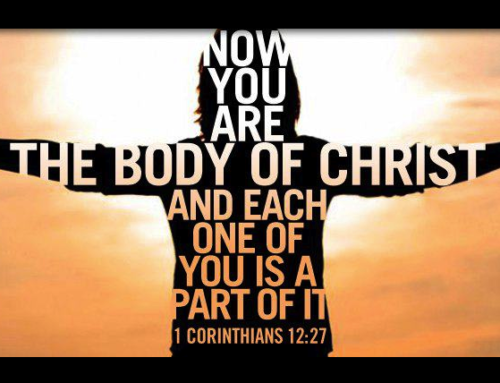#11 Put your money where your faith is.
Where is your treasure? Discover that and you will find your heart.
This is an important one. Money and possessions were a big agenda item for Jesus but not so much for the church.
In my experience the church typically has a once-a-year money preach which is on how and why you should tithe [ten percent] your money to the church and then usually apologises for having to talk about money.
The church really does seem to have two gears when it comes to money – demanding it or apologising that they have to ask for it. But Jesus was not apologetic about speaking about money and so maybe we should look more deeply into that.
Even when i was a student/youth pastor in the Vineyard church being paid a salary by the church i struggled with the idea that the majority of the money that came in went to buildings and salaries. i still would love for the church to get more creative with how we do church so that we can turn that around.
We know that in the early Acts church there was a daily distribution of food to widows and perhaps others and that the people chosen to caretake that work [including Stephen, the first martyr] were chosen for being ‘full of faith and of the Holy Spirit’ and the group had hands laid on them and were prayed for. This was something the early church took seriously.
We also have the story of Jesus hanging out with the tax collector Zacchaeus, and while we don’t sadly have the transcript of their conversation, we do know that after just one meal encounter, Zacchaeus responds in this way:
‘But Zacchaeus stood up and said to the Lord, “Look, Lord! Here and now I give half of my possessions to the poor, and if I have cheated anybody out of anything, I will pay back four times the amount.” Jesus said to him, “Today salvation has come to this house, because this man, too, is a son of Abraham.”‘ [Luke 19]
We know the American church has something like 2.5% of people who actually tithe [was 3.3 during the Great Depression] and this tends to be a problem worldwide.
Now i don’t want to be prescriptive to you in terms of how you give, but i do want to strongly suggest that beyond just ‘asking Jesus into your heart’ you need to ask Him into your wallet. Giving and generosity is a biblical mandate. Spend some time reading about money and possession in the Bible and ask the necessary questions about yours.
Personally, i prefer the idea of giving to places and people where i know how the money is being used – so we give to a family, an organisation and a group [ Common Change, which is one amazing creative way to give – ask me how] but if you do give directly to a church then know and understand where the money is going.
Also a more careful reading of the Bible will, i think, show you that the tithe was a minimum requirement with gifts and other offerings happening over and above that, so you can definitely tithe to the church and give elsewhere.
Do you know what your pastor earns? And if it’s eight times what the church secretary earns, is that okay? And if it’s one-eighth of what you earn, is that okay? What other questions should you be asking about what your church spends money on? Those overseas short-term missions?
Use your brain [as mentioned in Tip 4] when it comes to money and interrogate your use of it. If you are not at the very least asking, ‘How does God want me to use my money?’ then there is work to be done.
A healthy reminder of Jesus’ perspective when it comes to these things is found in Matthew 6:
“Do not lay up for yourselves treasures on earth, where moth and rust destroy and where thieves break in and steal, but lay up for yourselves treasures in heaven, where neither moth nor rust destroys and where thieves do not break in and steal. For where your treasure is, there your heart will be also.”
Do you put your money where your faith is?
#40TipsForChristFollowers
= = = = = = = = = =
#12 Deal with your sin.
‘Therefore, since we are surrounded by such a great cloud of witnesses let us throw off everything that hinders and the sin that so easily entangles, and let us run with perseverance the race marked out for us.’ [Hebrews 12.1]
Maybe you need to start by dealing with your fear/awkwardness of the word ‘sin’ which for some reason doesn’t feel like a politically correct word and many of us shy away from it, perhaps because it has been used as a weapon to attack so many people outside of the church.
But the Bible calls it sin. And the word sin conjurs up messy and ugly and dirty things and so it’s probably quite helpful to keep it in that form. The moment we euphemise the word and make it more palatable so we tend to make sin more palatable and feel like less of a problem. Sin is living against the will and character and call of God and so we need to take it seriously.
The ‘great cloud of witnesses’ mentioned at the start of this chapter is a throwback to the previous chapter where the writer lists a whole bunch of people that God used who were cowards and murderers and adulterers and who got it wrong a lot and so we are in good company here. God doesn’t choose perfect people, but once we respond to God’s call it is a slow and steady working of our lives towards a more perfect and Godly state.
Two things are mentioned here: Things that hinder and things that entangle.
If you continue with the race metaphor, something that hinders you is an obstacle that gets in the way or that you have to do some extra work to get around. What is hindering you at the moment? What is stopping you from living the kingdom life that God calls you to? Is it a sin you are currently doing that needs to be stopped? Is it a bad life choice that continues to be a barrier to your growth? An attitude that needs to be worked on – to your parents maybe, or your boss, or that colleague you don’t like, or maybe to someone of another race or class or age or gender?
Something that entangles is a little more serious. You can’t continue running until you stop and deal with that thing and get it off your feet. This might be an addiction or a bad habit that you’re currently struggling with. Or perhaps you are holding on to unforgiveness and it is actually affecting every other relationship in your life. It could be as serious as a secret life – cheating on your wife or girlfriend, gambling debt, alcoholism or drug addiction and you need help. What is entangling you right now?
You HAVE to deal with sin! Not only does it mess up your relationship with God but it also tends to affect your relationships with people and stop you from living your best life.
How do we do it though? The rest of that Hebrews passage has some ideas:
‘Let us fix our eyes upon Jesus, the author and perfecter of our faith, who for the joy set before Him, endured the cross, scorning its shame, and sat down at the right hand of the throne of God. Consider Him who endured such opposition from sinful men, so that you will not grow weary and lose heart.’ [Hebrews 12.2-3]
We know Jesus has already run the race and so He cheers us on with conviction and recognition. Because He cheers from the finish line, fixing our eyes upon Him means we are facing the goal and can run with full confidence and perseverance. We are not alone in this and the one who died to deal with sin fully gets it and is fully there for us and will not leave us to fend for ourselves.
James reminds us that ‘after desire has conceived, it gives birth to sin, and sin when it is full-grown, gives birth to death.’ [1.15] We cannot allow sin to remain unchallenged in our lives because the end point is always some kind of death [physical, emotional, relational, community or even spiritual] – we must deal with it head on so that we can once again run with perseverance.
What sin is hindering you at the moment?
What sin is entangling you?
Deal with it. With God and inviting people who love you to hold you accountable and give you strength where needed. But don’t leave it unchallenged.
Deal with your sin!
#40TipsForChristFollowers
= = = = = = = = = =
#13 Right relationship trumps worship
This feels like a bit of a controversial one, but let’s look at Jesus’ words:
‘Therefore, if you are offering your gift at the altar and there remember that your brother has something against you, leave your gift there in front of the altar, first go and be reconciled to your brother; then come and offer your gift.’
Remembering that the greatest commandment alongside the words ‘Love the Lord your God with all your heart, soul, strength and mind’ has the words ‘Love your neighbour as yourself’.
Maybe it’s not so much that right relationship trumps worship as it is that broken relationship comes in the way of true worship?
As John reminds us, ‘For whoever does not love their brother or sister, whom they have seen, cannot love God, whom they have not seen.’
If loving God includes loving your neighbour as yourself then to be able to worship God well, or maybe at all, requires restored relationship between you and your brother.
As much as this might seem super difficult bordering on impossible to some of you, we can look to more of Jesus’ words in Matthew 5 after teaching what we know as the Lord’s Prayer: ‘For if you forgive men when they sin against you, your heavenly Father will also forgive you. But if you do not forgive men their sins, your Father will not forgive your sins.’
This is powerful stuff! And really difficult for some of us. To me it sounds like, as free as the gift of salvation is, there is still a cost attached to it [we see further examples of this in Matthew 25 and 7]. The gift of new life is free, but it does also require us to live differently and one of the ways we are called to do this, is by seeking right relationship with those around us.
Is there anyone in your life [or out of your life] who is standing in the way of you honestly being able to worship God without needing to drop your gift and go and do some tough work?
Also note that the line is ‘has something against you’ which perhaps makes it even tougher.
If we are genuine about wanting to follow Jesus, it will mean some tough decisions and actions in our life. But anything less is something different and so if we claim it, we have to start living it out in every way…
Are you relationally free to authentically worship?
#40TipsForChristFollowers
= = = = = = = = = =
#14 Learn when to have Public vs Private conflict
Jesus give us a really helpful way of dealing with conflict.
“If your brother or sister sins against you go and point out their fault, just between the two of you. If they listen to you, you have won them over. But if they will not listen, take one or two others along, so that ‘every matter may be established by the testimony of two or three witnesses.’If they still refuse to listen, tell it to the church; and if they refuse to listen even to the church, treat them as you would a pagan or a tax collector.” [Matthew 18]
People love bringing this one up when challenged on social media [Dude, why didn’t you inbox me or take me out for coffee?] but the way i see it, especially when you hold it against other examples in the Bible, and particularly the New Testament, it works a little differently than that.
Firstly, the brother in question i believe refers to a fellow believer. So this is Jesus giving some in house shop-keeping here. The ‘as you would a pagan or a tax collector’ would be an interesting one to dive further into as well because surely the answer would be to love them as yourself and look for opportunities for peace and restored relationship. But i think those are side pieces to the main thing i want to look at.
There are numerous occasions where Jesus clearly doesn’t seem to be taking His own advice [yes, yes, i’m not Jesus – that one gets thrown around a lot too, but Paul does it as well] like when He publically takes on the Pharisees and other teachers of the law on many occasions [but especially Matthew 23] and we also see it when Jesus calls out various disciples publicly [James and John on at least one occasion and Peter in that infamous moment when Jesus refers to him as satan for the mindset he is exhibiting] [Matthew 16] but we also see it demonstrated by Paul calling out Peter [again, publicly] in Galatians 2.
For me, the difference is public vs private sin. If someone has sinned privately against you then approach them privately [inbox/coffee/phone call] and deal with it in the excellent way Jesus suggests.
But when the sin is public and there are ramifications for the audience, there are times to confront sin/a person publicly. For the sake of the audience.
For example, someone writes a status on social media that needs to be challenged. If i go to that person behind closed doors and we deal with it we might be able to restore relationship. But if nothing happens publicly then all the audience who were exposed to the status are still believing the lie/misconception/untruth which can be super unhelpful.
When Jesus witnessed a behaviour or attitude that was contrary to the kingdom and doing damage to the onlookers He often called it out for the benefit of all. Some extra work may have been needed to restore relationship with the individual afterwards, but there was no question of the crowd thinking Jesus endorsed that wrong thinking or behaviour.
Public sin requires public challenge.
Private sin requires private challenge.
We may get it wrong sometimes and that’s okay. That’s why we have community and people to hold us accountable and let us know and we need to hold close to the idea that this should always be Truth spoken in Love. The purpose is not to belittle or ridicule or break down but to uphold Truth.
Would love to hear your thoughts on this and look a little more closely at the ‘Do not judge’ passage people also like to throw in. At the very least can we hold that against the examples mentioned here and ask if the people got it right here or if we might be misinterpreting that passage?
Learn how and when to have public and private conflict and let it always be done as speaking the Truth in Love.
#40TipsForChristFollowers
= = = = = = = = = = =
#15 Don’t expect God’s future plans and hopes for you to be easy.
It is amazing to me how many theologies people are able to construct that work for them but didn’t work for most of the people we see throughout the story of the Bible. Maybe that’s a helpful test for us to keep in mind.
One of those theologies is a belief in non-suffering as in God is the mystical genie in the sky who removes all pain and suffering from me and makes my life easy and comfortable.
If you have a theology that views God that way, then when your life is easy and comfortable you can feel at ease because you believe God made it that way and don’t have to interrogate unjust privilege or systems and structures around you that benefit you at the expense of others or even economic systems that do the same. ‘God is blessing me’ [with a quieter ‘because I deserve it’ unstated and in brackets].
But then what about those living in the townships or fleeing from a country in war or suffering the trauma of a sexual assault? Does God not love them? If my theology doesn’t work for everyone, does it work for anyone?
i love this verse in Psalm 34 [my favourite psalm, every single line is so rich – take a look!] that comforts me when things are hitting fans:
‘The Lord is close to the broken-hearted and saves those who are crushed in spirit.’ [Psalm 34]
As i see it, if your heart has been broken or your spirit has been crushed, those are two of the lowest most-painful places you can get to, and yet even there God knows and is there and will save you. It doesn’t for a second suggest God will take the pain or hard time away, but just that God will be there with you and give you the strength to make it through. This is consistent with greater teaching and example we have of God throughout the Bible.
Jesus Himself warned us not to expect comfort and ease in a number of places:
‘Because of the increase of wickedness, the love of most will grow cold, but the one who stands firm to the end will be saved.’ [Matthew 24]
‘You will be hated by everyone because of me, but the one who stands firm to the end will be saved.’ [Matthew 10]
In Jesus’ call to people who would be His disciples it included ‘Denying self, taking up your cross on a daily basis and following Me.’ which, if you look at it, a little closely, does not suggest comfort and ease – live as if you are walking towards your death.
Jesus’ command for us to love our enemies assumes we will have them. And so on.
i have a saying which almost was the title for my first book which goes like this: If your Christianity is easy, you’re doing it wrong. And again a simple read through the Bible of people who pursued God or chose to follow Jesus shows that easy living was not on the agenda.
Take Paul for example. In 2 Corinthians 11 he spends a whole paragraph talking about how easy and comfortable it had been for him to follow Jesus which included multiple imprisonments, floggings [five times], being beaten with rods [three times], being stoned, shipwrecked [three times], hungry, thirsty, cold, naked etc etc
This is what i honestly believe on this: It is unlikely that honestly and authentically following Jesus [with heart, soul, strength and mind and loving your neighbour as yourself] is going to be easy and not going to cost you deeply, BUT we don’t do it alone. We have the Holy Spirit living in us [Christ in you, the hope of glory] which gives us the strength to do all things through Christ who strengthens me because He who is in me is greater than he that is in the world. And a whole bunch more. God doesn’t take away hard times but God says, ‘You will never face them alone. My presence and my people will be there for you and we will get through this.’
How easy and comfortable and stress-free is your life at the moment? Is that because of ‘the blessing of God’ or possibly because of the decisions you or others have made or the disobedience of man? Are you Loving God with all of your money/possessions/time/decisions?
#40TipsForChristFollowers







Leave a Reply